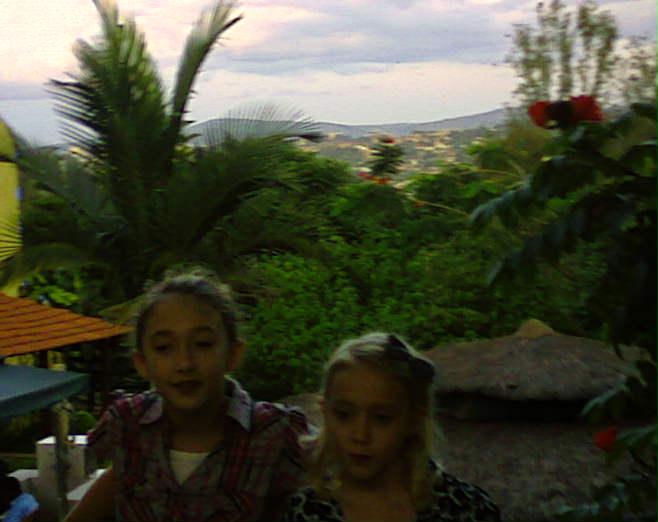Our house came with its own servants. Most Americans of our class aren’t accustomed to having servants and it’s been somewhat problematic for us in dealing with this issue. What you say, having someone, or in this case two someones to tend to life’s mundane chores thereby freeing oneself up for more noble pursuits, how could this be problematic? Not to mention the secondary issue of what does one pay them given that in the US manual labor is quite expensive…
We inherited a housekeeper named Dorcella. Dorcella is an extremely hard worker. She will clean everything and anything in sight given the opportunity. What’s wrong with this you ask? Well, as it’s been raining quite a bit recently, we’ve been leaving our shoes at the door upon entering the house so as not to track the red mud across the white and cream colored tile found in every room of the house. Well, on Monday, Dorcella washed them all along with the baseball gloves and balls we made the mistake of leaving lying near the shoe pile. We’ve taken to hiding the shoes we don’t want washed as they do take some time to dry given that we haven’t a dryer here and use a line for all of the laundry.
Speaking of laundry, Dorcella will iron everything that comes off the line including underwear. Yes, I am sitting here writing this in my freshly ironed knickers. Go figure!
Dorcella speaks a pretty good amount of French and will even go to the market for me and make the fresh fruit and veggie purchases in the mad house of the open market. I am much obliged to her for that because the market is sensory overload on overkill. It cannot be described in any terms that Americans can possibly understand. Let’s just say that when we took the car up there replete with kids, the mass of humanity that surrounded us all begging to be our errand boy, banging and pounding on our car was like being in the movie I Am Legend and getting caught out after dark with the “zombie” creatures on the attack. I think the kids experienced true shock that day.
Dorcella also acts as translator for the gardener. He speaks no English and his French is not very much better. Ndugu arrives at 6:00 am whereupon he proceeds to wash the car (we’re still driving Tulane’s big Toyota Fortuner) whether it needs it or not. He also takes care of the yard and indeed the plantings and “parterres” are beautiful but what he possibly can do in so small a yard all day long baffles me.
The 2 servants coupled with the guard making his rounds night and day leaves little room for any privacy. I believe most Americans cherish their privacy and so I had to convince them that I only needed part-time help. This was no easy feat as the concept of not immediately cleaning something that one has soiled seems foreign to them. Dorcella washes the garbage bin every time she empties it---often multiple times per day.
It’s a bit ironic and seems to contradict all of the images we tend to have of Africa, but we’ve never been so clean before as we’ve been in Rwanda. Go figure.











